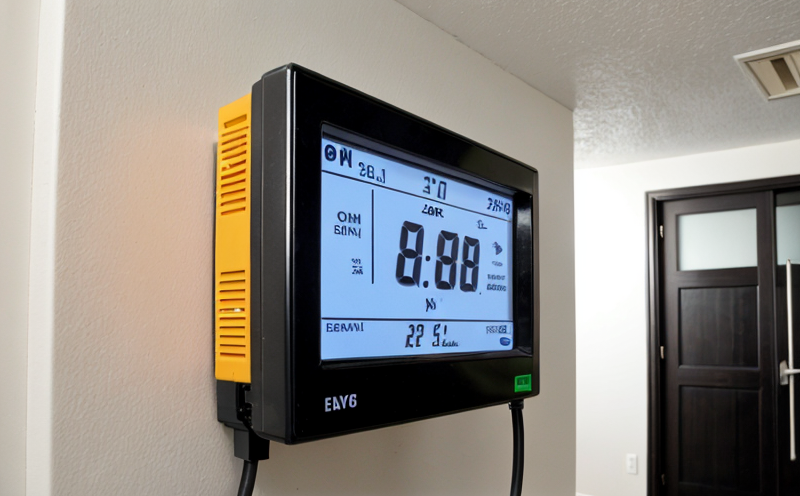IEC 63129 Energy Efficiency Testing of UPS Systems
The International Electrotechnical Commission (IEC) Standard IEC 63129 defines the procedures and criteria for determining the energy efficiency of uninterruptible power supply (UPS) systems. This standard is critical in the energy sector, particularly as organizations strive to reduce their carbon footprint through more efficient use of electrical resources.
UPS systems play a vital role in ensuring continuous power supply during outages; however, they are also significant contributors to energy consumption. Efficient UPS systems can help optimize energy usage and minimize environmental impact. The IEC 63129 standard provides a framework for measuring the efficiency of these systems under defined operating conditions.
The testing procedure involves simulating real-world operating scenarios where the UPS is connected to a load that draws varying amounts of power. The test measures the efficiency at different points along the load curve, providing insights into how efficiently the UPS system converts input energy into output energy while handling the load.
Key parameters considered during this testing include:
- Input and output power factors
- Voltage regulation
- Efficiency under no-load, half-load, three-quarters load, and full load conditions
- Thermal stress and heat dissipation characteristics
The results of the IEC 63129 testing are reported as a percentage value representing the efficiency of the UPS system. This metric is crucial for quality managers and compliance officers to ensure that their organization’s equipment meets regulatory requirements and contributes positively to sustainability goals.
Industry Applications
| Application Area | Description |
|---|---|
| Data Centers | Data centers require highly efficient UPS systems to ensure continuous operation. Testing per IEC 63129 helps in selecting the most efficient UPS for minimizing energy costs. |
| Telecommunications | In telecommunications, UPS systems are essential for maintaining network reliability. This testing ensures that the equipment operates efficiently under various load conditions. |
| Solar and Wind Power Plants | UPS systems in renewable energy plants must be efficient to maximize the use of intermittent power sources. IEC 63129 helps in optimizing these systems for better performance. |
| Hospitals and Medical Facilities | Healthcare facilities require reliable UPS systems to maintain critical operations during outages. Testing per this standard ensures that they meet the highest efficiency standards. |
The list of applications is not exhaustive; the demand for efficient UPS systems is widespread across various sectors, including manufacturing, commercial buildings, and transportation infrastructure.
Eurolab Advantages
- Comprehensive Testing Capabilities: Eurolab offers a full suite of testing services that align with IEC 63129 standards. Our laboratory is equipped with the latest measurement instruments to ensure accurate and reliable results.
- Experienced Engineers: Our team consists of experienced engineers who have extensive knowledge in energy efficiency testing, ensuring that we can provide detailed insights into your UPS system performance.
- Regulatory Compliance: We are committed to helping our clients meet all relevant regulatory requirements. Our expertise ensures that you stay compliant with international standards like IEC 63129.
- Custom Solutions: Eurolab can tailor its testing services to suit your specific needs, whether you require basic efficiency testing or more complex analyses.
Why Choose This Test
The IEC 63129 energy efficiency test is crucial for several reasons. Firstly, it provides a standardized method for evaluating UPS systems, ensuring that all products are assessed under consistent conditions. Secondly, the results of this testing can significantly influence purchasing decisions by highlighting which UPS models offer the best performance in terms of energy efficiency.
For quality managers and compliance officers, these tests are essential to ensure that the equipment used meets the latest standards. They also play a key role in R&D efforts aimed at developing more efficient UPS systems. Additionally, the test results can influence procurement strategies by helping organizations select suppliers who prioritize energy efficiency.
The testing process not only benefits individual companies but also contributes to broader sustainability goals. By optimizing UPS system performance, businesses reduce their carbon footprint and contribute to global efforts in combating climate change.





